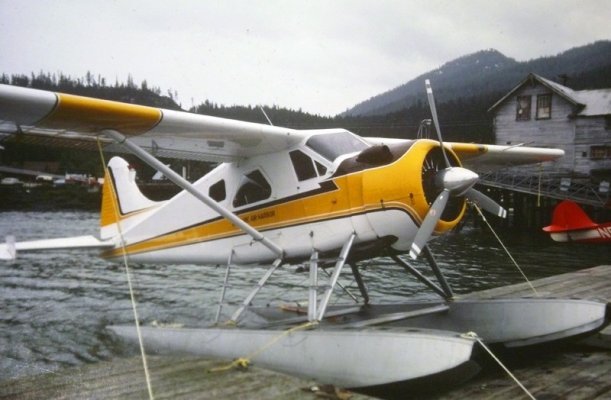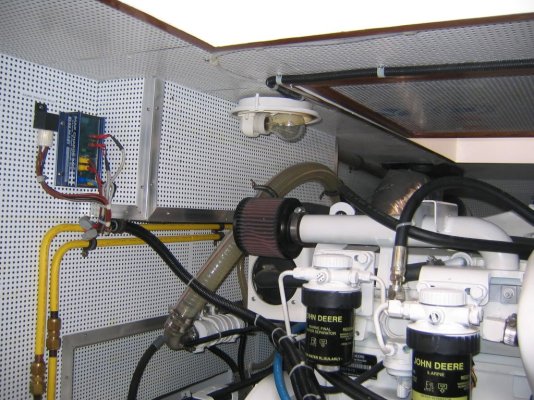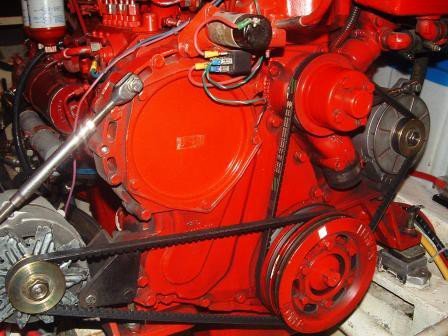Tony B wrote:
Many mid-1980's boats have around 1200 to 1500 hours on them. Assuming they were exposed to an average amount of maintenance, are these engines still considered young or are the ready to die? Everything has an expected life span, so what is it for gas engines?
That's a bit like the "how long is*a piece of string" question.* The only gas engines I've had experience with are vehicle, aircraft, and outboards.* In my opinion, the life of an engine--- any engine, gas or diesel--- is largely if not totally dependent upon how it is operated and maintained.
I know a lot of people believe in running an engine hard.* "It's good for 'em" is the reasoning given.* I don't subscribe to this at all.* I've mentioned this before in other discussions but the best engine person I've ever known was Bob Munro, one of the founders of Kenmore Air Harbor and the person who ran it from 1946 to 2000.* He was a terrific pilot but he was an even more terrific engine mechanic.
I asked him one day what I as a pilot could to do maximize the life of the 450 hp radial engines in the Beavers that I've been flying since 1980.* He said, "A piston only goes up and down so many times.* So the easier you make life for the engine, the longer that piston will go up and down."
By this he did not mean to baby an engine or run it at power settings that were too low.* And he was not trying to say that a piston has a specific number of cycles before it will fail.* Only that if you treat an engine properly, it will treat you properly.* He was a big proponent of operating an engine in the lower part of it's proper operating range.* And he definitely did not agree with the notion that running an engine hard is "good for it."* Be it the gas engines in his seaplanes or the Cat diesels in his old steel-hulled deFever.
He went on to tell me some specifics about how to make life easier (and longer) on the Beaver's engine, but the same philosophy applies, in my opinon, to any engine.* We run and maintain the FL120s in our boat as though it was 1960, not 2012, for example.* And I think it pays off in terms of engine longevity.* I've had sufficient very*long-term experience with specific vehicles and planes to convince me of this to my satisfaction.
So I don't think it's so much how many hours are on the gas engines in the boats you are interested in, but how the engine was treated during those hours.* That same number of hours could mean an engine is nearing the end of it's useful life, or it may mean that it has many hours of operation left in it.* It will all depend on how the previous operator(s) treated it.* So try t find out how the engines were operated and maintained by the previous owners.* Gas engines may be cheaper to replace than diesels, but I don't view that as a rationale to treat them as throw-away engines.
BTW, as Kenmore Air added turbines to its fleet---"stinky things" as Bob called them--- he had his basic "make life easy on it" philsophy extended to them, too, a practice that continues to this day.* And it has paid off big time for them in terms of the service life they get out of them, in some cases almost half again the life and definitely a fraction of the problems*other seaplane operators with the same planes and turbines are experiencing.
(I took the attached photo during one of my wife and my trips to SE Alaska in the late 1990s.* The plane was built in the 1950s, the engine during WWII.)
-- Edited by Marin on Monday 13th of February 2012 10:46:11 PM


